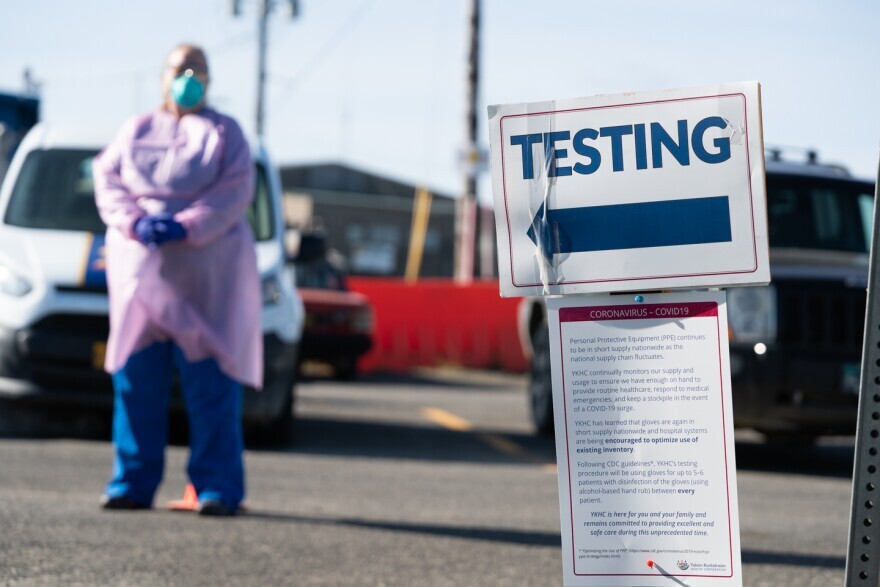COVID-19 cases in the Yukon-Kuskokwim Delta are spiking. The number of active cases is doubling every two to three days, and local health officials expect the numbers to keep rising as the highly contagious omicron variant spreads.
Local health officials say that the region hasn’t experienced a surge like this before. “We're seeing skyrocketing cases,” YKHC Chief of Staff Dr. Ellen Hodges said on Jan. 12. “It's the fastest growth of cases I’ve seen.”
Over the past week, daily announced cases in the region have nearly quadrupled, from 36 announced cases on Jan. 7 to 133 on Jan. 11. Hodges expects that cases will continue to rise. “We certainly haven't seen a peak yet, so I anticipate there being a lot more COVID," she said.
YKHC confirmed that omicron had arrived in the region on Friday, Jan. 7. Since then, active cases have doubled every two to three days. Statewide, daily case rates hit their highest peak ever this week.
While scientists believe omicron is more contagious than previous variants, they also believe it may cause less severe illness, especially in vaccinated and boosted individuals. Hodges explained that “it's possible [omicron is] a little bit less dangerous. But I wish to emphasize very strongly that for those who are unvaccinated, this is still a dangerous, dangerous virus.”
Hospitalizations have not yet spiked in the region, and YKHC is taking extra precautions to prevent cases from overwhelming the health care system. YKHC hired about 100 new temporary workers to increase the regional health care workforce. On Monday, Jan. 17, all non-clinical YKHC employees will transition to telecommuting.
“What that's going to help us do is try to keep our workforce intact for as long as possible by spreading our workforce out and getting people back home, if possible,” YKHC President and CEO Dan Winkleman said.
In September 2021, as COVID-19 hospitalizations inundated state hospitals during the delta variant wave, YKHC activated crisis standards of care. These standards of care remain an option for the hospital, and are currently in place in other areas of the state where ICU capacity remains limited.
Hospital officials say that the public will play a big role in determining how long the omicron wave lasts in the Y-K Delta. The way to slow the spread of this variant is the same as previous ones. Hodges says that everyone should get vaccinated, and if you’re vaccinated and eligible, get boosted.
Hodges also recommends upgrading your mask. “Cloth masks are probably not effective against omicron. So we want people to be in surgical masks. KN95 or N95s, if they can.” Double masking, with a cloth and surgical mask that fits tightly around your nose and mouth, can be an alternative for those who don’t have access to KN95 or N95 masks.
YKHC released new guidelines for people who test positive for the virus and for those exposed to COVID-19. The health corporation’s guidelines differ slightly from those recently issued by the CDC. Under YKHC’s recommendations, anyone with symptoms should test as soon as possible, and anyone who is infected with COVID-19 is required to isolate for at least five days from the onset of symptoms. Non-vaccinated or non-boosted individuals who are exposed to COVID-19 should quarantine for at least five days and get tested on day five.
“I think I wish to emphasize that 10 days is still the safest if you don't have essential duties,” Hodges said. “But we understand that there's some cases where people are essential workers, or they're missing too much school and need to get back to school.”
Bethel residents can receive a free COVID-19 test at the hospital every weekday, or at the drive-through testing site from 11:30 a.m. to 1:30 p.m. Monday through Saturday. In villages, call your local clinic to get tested.







